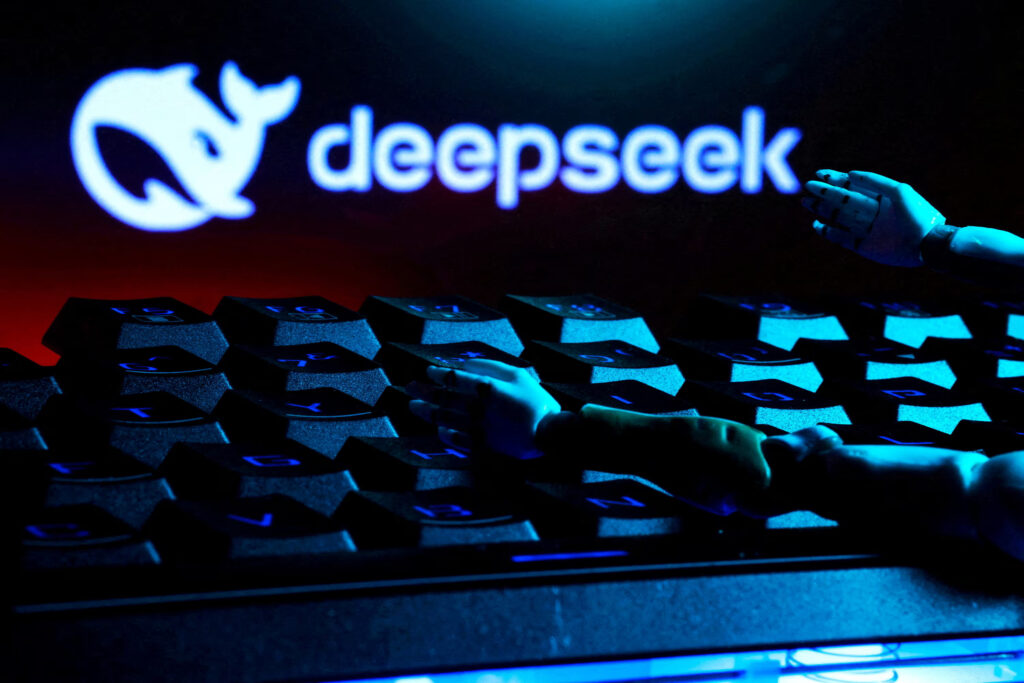“DeepSeek export controls“
Chinese AI firm DeepSeek has come under intense scrutiny as a senior U.S. official disclosed that the company is actively supporting China’s military and intelligence operations. This revelation, reported by Reuters on June 23, 2025, highlights serious concerns over DeepSeek’s alleged circumvention of U.S. export controls and its role in advancing China’s military capabilities through artificial intelligence technology. The controversy underscores the escalating tensions in the U.S.-China technology rivalry and raises critical questions about data privacy, export restrictions, and national security.
DeepSeek Aids China’s Military: Allegations and Evidence
Support to Military and Intelligence Operations
A senior U.S. State Department official, speaking anonymously to Reuters, confirmed that DeepSeek “has willingly provided and will likely continue to provide support to China’s military and intelligence operations.” This support reportedly extends beyond merely offering open-source AI models, indicating deeper collaboration with Chinese defense entities.
Use of Southeast Asian Shell Companies to Evade Export Controls
DeepSeek export controls – DeepSeek is accused of attempting to bypass U.S. export restrictions on advanced semiconductors by using shell companies based in Southeast Asia. These companies allegedly facilitate the procurement of high-end U.S.-made chips, specifically Nvidia’s H100 GPUs, which have been restricted from export to China since 2022 due to fears they could accelerate China’s military AI capabilities.

Access to Nvidia’s High-End Chips
The official disclosed that DeepSeek has access to “large volumes” of Nvidia’s H100 chips, despite U.S. export bans. This access is believed to be achieved through complex workarounds, including remote access to data centers in Southeast Asia, enabling DeepSeek to leverage cutting-edge hardware critical for AI development.
Data Sharing with Chinese Surveillance Apparatus
DeepSeek’s privacy disclosures indicate that it transmits data from American users to China via backend infrastructure linked to China Mobile, a state-owned telecommunications giant. This has raised alarms about user data being shared with Beijing’s surveillance network, potentially compromising the privacy of millions of global users.
Industry and Expert Reactions
Public Statements and Social Media Highlights
- CN Wire Twitter: Highlighted key allegations, stating DeepSeek provided user information to the Chinese government and sought access to Southeast Asian data centers to remotely use U.S. chips.
- Andrew Curran Twitter: Emphasized the accusation that DeepSeek aids China’s military and intelligence operations and uses shell companies to evade export controls.
- Paul Triolo Twitter: Offered a more cautious view, suggesting some allegations may be unproven and possibly part of efforts to discredit DeepSeek ahead of new AI model releases.
Nvidia’s Position
Nvidia has denied claims about the unauthorized export of its H100 GPUs to DeepSeek, though U.S. officials maintain their assessment based on intelligence sources.
DeepSeek’s Rise and Its AI Capabilities
Founded in Hangzhou, DeepSeek made headlines earlier in 2025 by claiming its AI reasoning models matched or outperformed leading U.S. counterparts at a fraction of the cost. This rapid ascent has drawn significant attention from global tech observers and governments alike, fueling concerns about the sources of its technological advancements.
Implications for U.S.-China Tech Relations
Export Controls and National Security
The DeepSeek case exemplifies the challenges the U.S. faces in enforcing export controls designed to prevent China from acquiring advanced AI technology that could enhance its military power. The use of shell companies and remote data center access complicates enforcement efforts, suggesting a need for more robust international cooperation and monitoring.
Privacy and Data Security Concerns
The transmission of user data to Chinese state-linked infrastructure raises broader issues about privacy and surveillance in the age of AI. With tens of millions of users worldwide, DeepSeek’s practices could have far-reaching implications for data security and trust in AI platforms.
Conclusion
The allegations that DeepSeek aids China’s military and intelligence operations while evading U.S. export controls highlight a critical flashpoint in the global AI and semiconductor landscape. As the U.S. government intensifies scrutiny of Chinese tech firms, the DeepSeek case underscores the complex intersection of technology innovation, national security, and international trade policy. Moving forward, the balance between fostering AI development and protecting strategic interests will remain a pivotal challenge for policymakers worldwide.
This article is based on reports and official statements as of June 23, 2025.
Read latest new on Tesla Robotaxy




